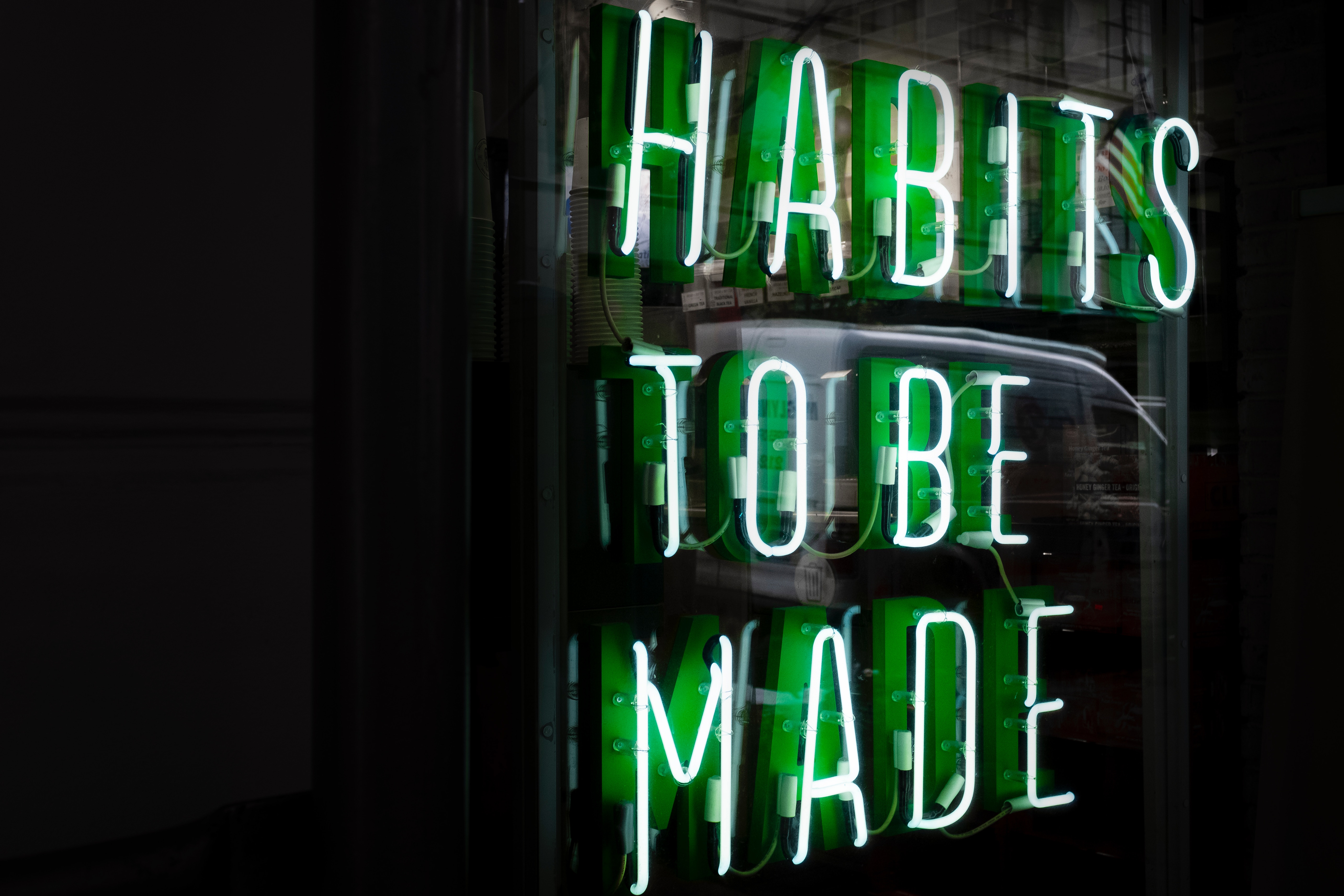Habits often get a bad rap. Smoking cigarettes, drinking copious amounts of alcohol, or engaging in sexual behaviors with strangers are often among the list of activities framed as habits and perceived as self-destructive. What if we began to rethink common associations with the word habit?
In Charles Duhigg’s book, The Power of Habit: Why We Do What We Do in Life and Business, he contends that unlocking the patterns around our habits can lead to rituals aligned with desireable outcomes. Duhigg insists that with increased attention to the behaviors we perform every day, it is possible to transform our lives. To create habit awareness, Duhigg proposes a cycle that consists of a “cue, reward, and routine.”
It is possible to form habits that can create pathways to health and familial successes. If your goal is to lose ten pounds, then you must begin to make time for exercise, adequate rest, and preparing healthy food options. Spending consistent time with your family requires you to create habits aligned with organizing a schedule.
However, you define success, committing to new habits may provide the keys to unlocking closed doors that prevent you from discovering your unique talents, gifts, and skills that can influence the lives of others.
I have some habits that I’ve nurtured for over twenty years. My commitment to exercise began in the summer before I started high school. I began to work out four or more times every week without fail because I was afraid.
No, I was not bullied in high school, but I was concerned about swim class. Similar to some of my friends, I wanted to look strong in front of the girls. I was terrified of going to swim class with a “bird chest.”
I begged my parents to buy me a weight bench. Growing up in a home with six siblings, didn’t leave much money left over for exercise equipment. However, somehow I appealed to my parents’ emotions, and eventually, they bought me a weight bench from Sears.
My friends and I worked out hard in that summer before our freshman year of high school. We only managed to put on half a pound of muscle, but I developed a special affinity toward lifting weights.
From those early workouts derived from my fears, I discovered a positive habit in a consistent exercise routine that helped me relieve stress and anxiety.
I visited the gym every week during college. The intense workout sessions served as a buffer between hard nights spent studying, partying with friends, and long commutes to campus.

After I finished undergrad, I discovered Capoeira classes offered at a small community center. Capoeira, a martial art created by enslaved Africans involving percussion instruments, acrobatics, self-defense, and rituals encouraged me to take my exercise regiments to a whole new level.
I began taking Capoeira classes two times per week thirteen years ago. When classes were not held, I trained Capoeira’s self-defense movements at the gym. Through becoming a father to three kids, getting married to an incredible woman, living experiences in two countries outside the US, starting multiple businesses, and a professional career, exercise remains part of my life.
On six of the seven days each week, I make time for physical activity. When I get upset, exercise uplifts my mood. Working out helps me sleep at night. Making time for fitness activities, coupled with eating healthy foods, helps me to maintain healthy body weight.
Some habits are good to keep because they can enhance your life. Pick up Charles Duhigg’s book and let’s commit to forming habits aligned with happiness and achievement.


